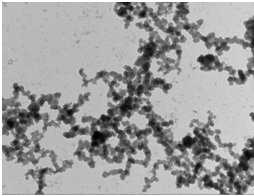Chitosan is an abundant and versatile biopolymer which is derived from chitin. It is composed of repeating unit glucosamine and N-acetyl glucosamine linked by N-glucosidic linkage. The prospects forbringing value of chitosan motivated worldwide research to find sustainable applications. As a result various applications ranging from cosmetics, medicine, materials, food and agriculture have been forth coming and reportedworldwide.
With the diversity of applications, research reports and financialinterests oriented around chitosan, there is a chance for an overexaggerationof its benefits. The accumulated documentation of the background science makes a strong case for the authenticity of chitosan. Additionally, it has unique properties such as biodegrability, biocompatibility, chelating and non-toxicity. These properties make chitosan a promising candidate for many agricultural application. As a versatile material, chitosan exhibits proved antimicrobial activities against fungi, bacteria, and viruses and acts as an elicitor of plant system. With the wide-spectrum antimicrobial actions, chitosan has been utilized to reduce or prevent the spread of pathogens. Furthermore, it has been reported for seedling growth and development, plant growth, and various physicochemical parameters.
Since last decade, chitosan based nanomaterials attracted considerable interest for their greater functionality due to smaller size, larger surface area and higher activity. The chelating properties of chitosan can form complexes with organic or inorganic elements such as copper, zinc and iron, through interaction of functional groups, thereby making the resulting chitosan metal nanoparticles. Chitosan based nanoparticles has been shown excellent system for delivery of agrochemicals such as fertilizer, pesticides, herbicide and macro and micronutrient to the plants. These nanoparticles also exhibited immune modulatory response through elevated level of plant antioxidant and defense enzymes activities along with accumulation of pathogenesis related proteins (PR-proteins) to strengthen the plant system against invading plant pathogen. Furthermore, chitosan based nanoparticles were reported as growth promoting activity, seedling growth and development, increased activity of hydrolytic enzymes during seed germination. Chitosan based nanoparticles has been developed improved crop yield and control of plant diseases. The enhanced efficiency and efficacy of nanoparticle as a smart deliver system is due to slow and sustain release of encapsulated of bioactive ingredients in comparison to conventionally usedsystem.Therefore, it has been receiving significant scientific interests and become one of the hottest topics in recent years, especially for its food and agricultural applications.Thus, development of such technologies that increase and improve potential effects without any adverse impact is urgent need for potential and sustainable benefits.
